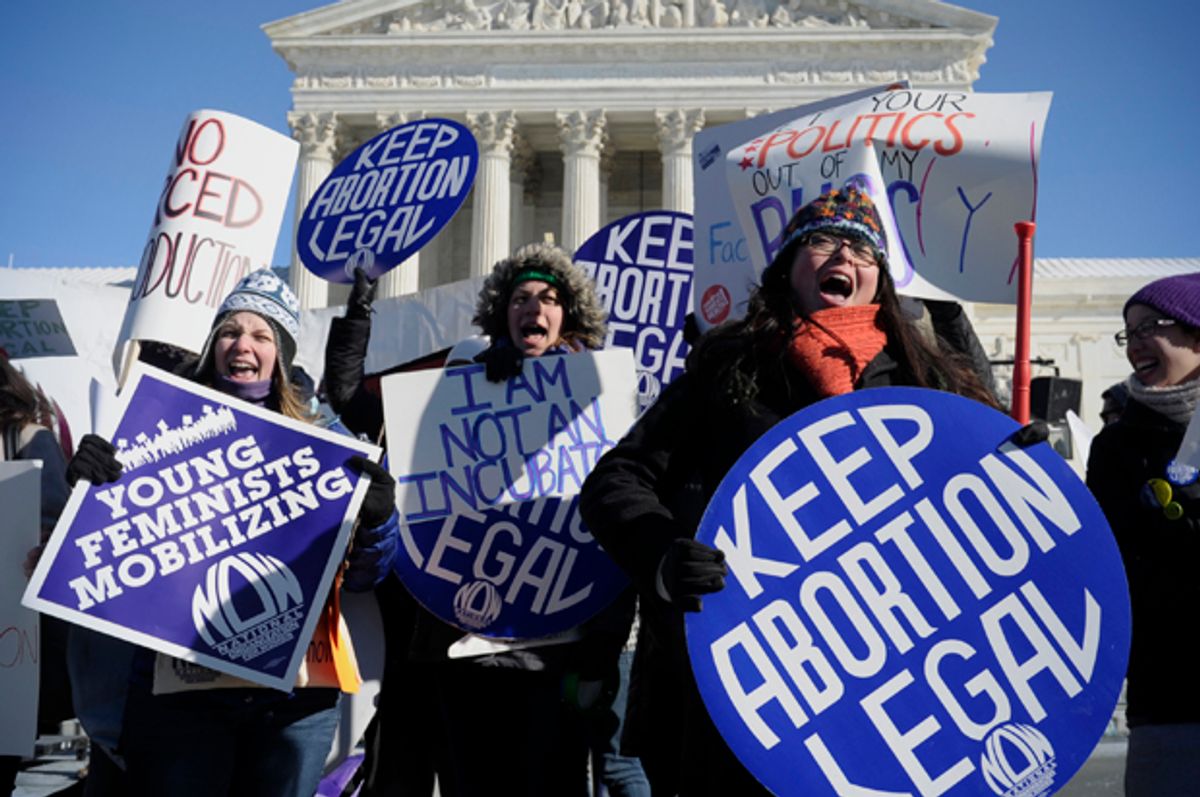I have spent a good amount of time this afternoon listening to people from across the country share their abortion stories. This is some of what I’ve heard:
I felt relieved.
I felt confused.
I felt a weight lifted off me.
I was surprised by how I felt.
I struggled with my decision.
I have no regrets.
The abortion speakout, organized by the 1 in 3 campaign (named for the 1 in 3 women who will have an abortion in their lifetimes), will last 8 hours. But it should run for 80 hours, 800 hours, forever. Because that’s how starved we are for honest conversation about abortion, and that’s how many different stories there are out there.
It was 1972 when Ms. magazine published the stories of 53 American women under the headline “We had abortions.” Between then and now, there have been other stories reported, essays written, speakouts organized, experiences shared over dinner. Often, when I consider the bravery of those who have come forward to speak openly and honestly about their abortions, I wonder how the procedure could still be so stigmatized.
But the shame persists, and the millions of people who have had and will have abortions make these decisions facing the layered burdens of access -- from restrictive laws to time needed off work to make multiple visits to the often difficult matter of finding a way to pay for it all -- and unbelievable judgments from a public that does not know, or care to know, their stories.
And so people continue to speak, to share their stories in all their complexities, perhaps until that eventual future moment in which we can make medical decisions that are best for us and our families without the state intervening, judging and punishing us.
Jacqueline, one of the more than 100 participants speaking out today, told me that she was raised in a religious household, and came to support the right to abortion only after she left home. But while she considered herself pro-choice, she still didn’t think she would ever personally have an abortion. “I didn’t think abortion was right for me,” she explained.
Then she got pregnant.
“When it happened, I thought, I am pregnant and I don’t want to be. It was a heartbreaking and almost surreal realization,” she said. “I thought, This isn’t real. I cried a lot. It took a while to accept it. To recognize that I was going to have to make a really difficult decision.
“I felt so bad about myself. I thought, This doesn’t fall in line with my plan for my life. This cookie cutter person I was supposed to be.”
Sharing her story, she explained, was her way of trying to help others who might be judging themselves just as harshly, to help them trust their decisions. “We know ourselves better than anybody else. We know what’s best for ourselves,” she said.
It was the medical assistant who first told Jacqueline she was pregnant who she said helped her feel supported and safe by reassuring her that everything would be OK. By speaking out, Jacqueline hopes to do the same for others. This kind of support also guides her experience in nursing school, and shapes how she views her relationships with patients.
“A few years [after my abortion], I was the one who had to give another person the same news, to tell someone they were pregnant,” Jacqueline explained. “She was devastated. I could just see that everything she was experiencing was what I had already been through. She knew she wanted to have an abortion, but she was so scared. So I shared my experience.”
A year later, the same woman was back in Jacqueline's clinic. “She told me, I remember you -- you told me I was pregnant.” The woman had chosen to terminate the pregnancy. “Then she said, Thank you so much. You have no idea how much your story helped me. I’d never known anyone who'd had an abortion, but seeing you and seeing that you’re OK and you’re a real person made me feel so much better. I am so glad that I chose what I chose.”

Shares